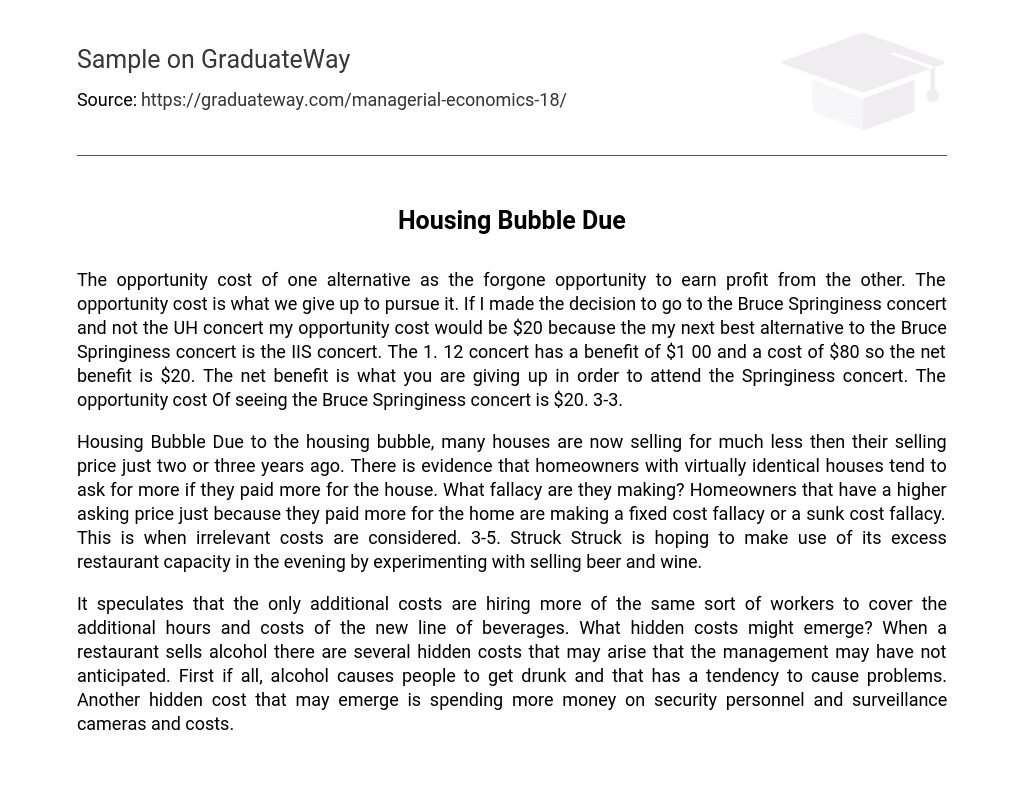The opportunity cost refers to the forgone opportunity to earn profit from another alternative. It represents what we give up in order to pursue a certain option. If I choose to attend the Bruce Springiness concert instead of the UH concert, my opportunity cost would be $20, as the IIS concert is my next best alternative. The IIS concert has a benefit of $100 and a cost of $80, resulting in a net benefit of $20. This net benefit represents what you are giving up by attending the Springiness concert. Therefore, the opportunity cost of seeing the Bruce Springiness concert is $20. 3-3.
The selling price of many houses has significantly decreased due to the housing bubble compared to their previous prices. Homeowners with similar houses tend to ask for higher prices if they paid more initially, which represents the fixed cost fallacy or sunk cost fallacy. This behavior considers irrelevant costs. Additionally, Struck intends to make use of its surplus restaurant capacity in the evening by considering selling beer and wine.
The text suggests that the only extra expenses involve hiring more workers of the same type to cover the additional hours and costs of the new line of drinks. What possible undisclosed expenses could arise? When a restaurant sells alcoholic beverages, there are several hidden costs that the management may not have anticipated. Firstly, alcohol consumption often leads to drunkenness, which tends to result in problems. Additionally, another hidden cost that may arise is the need to spend more money on security personnel, surveillance cameras, and related costs.





